THE WASHINGTON POST: Who will be the next pope? Francis’s death leaves no clear front-runner
Ahead of the conclave to select the next pope, names circulating include cardinals Bo of Myanmar, Tagle of the Philippines and Italians Pizzaballa and Parolin.
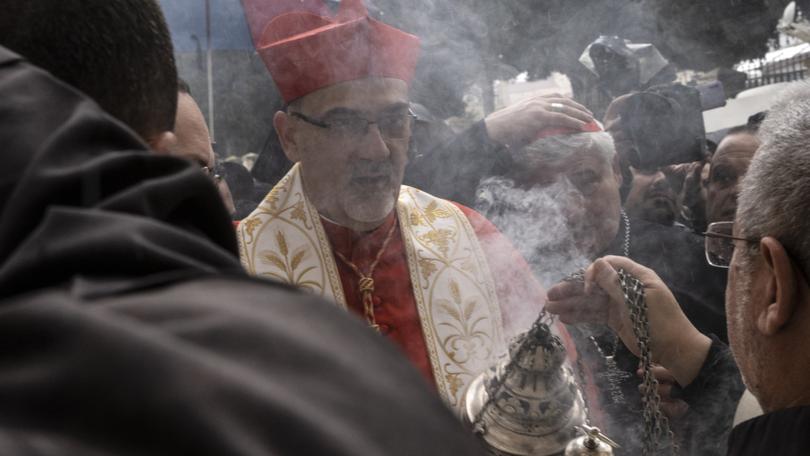
Fifteen to 20 days after the death of Pope Francis, cardinals of the Roman Catholic Church will shut the doors of the Sistine Chapel to pick his successor. It is set to be the largest conclave in the history of the faith and also one of the most unpredictable.
Only members of the College of Cardinals who are under 80 may vote. Theoretically, they may pick any baptised man, though the next pope will surely come from among the princes of the church: its cardinals.
Some church watchers have argued that Francis stacked the decks for a successor. He appointed 108 of the 135 cardinals who will be under 80. But Vatican insiders say it is wrong to conclude that the cardinals picked by Francis will look for a carbon copy.
Sign up to The Nightly's newsletters.
Get the first look at the digital newspaper, curated daily stories and breaking headlines delivered to your inbox.
By continuing you agree to our Terms and Privacy Policy.Some of them have far different views than he did on issues ranging from the role of women in the faith to LGBTQ+ outreach. Appointing cardinals is also no guarantee of minting a similar pope; electors selected by the more conservative Benedict produced Francis. Although anything could happen, insiders believe it may be hard for a staunch liberal or conservative to win the two-thirds majority needed given the large number of electors this time around.
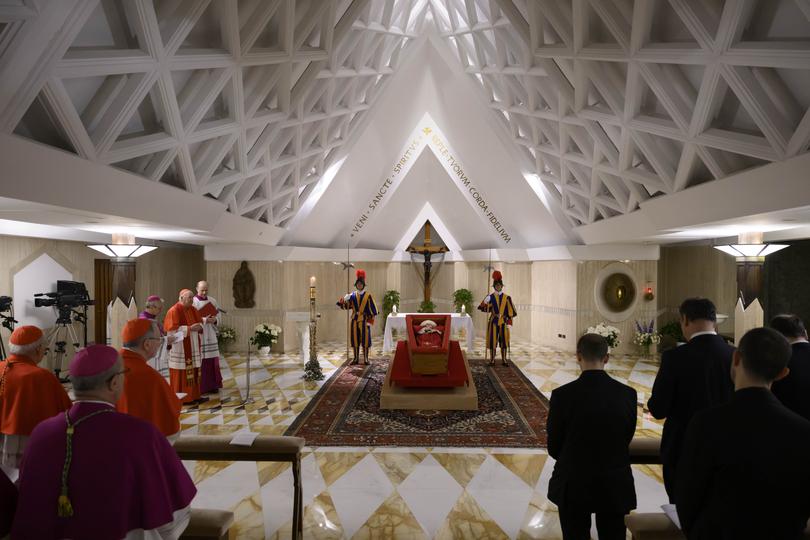
Under Francis, the College of Cardinals became historically diverse, both geographically and racially. Many of his picks came from outside dominant metropolitan areas - from cities such as Ekwulobia, Nigeria, or Santiago del Estero, Argentina. This will also be the first papal election since 1978 in which European cardinals will not make up a majority of the conclave.
Alberto Melloni, a historian based in Rome and director of the John XXIII Foundation for Religious Sciences in Bologna, Italy, warned that guessing the outcome this time is a “losing game.” Kurt Martens, a professor of canon law at the Catholic University of America, said: “There is the saying that who enters the conclave as pope comes out as a cardinal. The favorite never wins.”
That said, names of papabili - or potential next popes - are circulating. Here are a few.
Anders Arborelius (Stockholm)
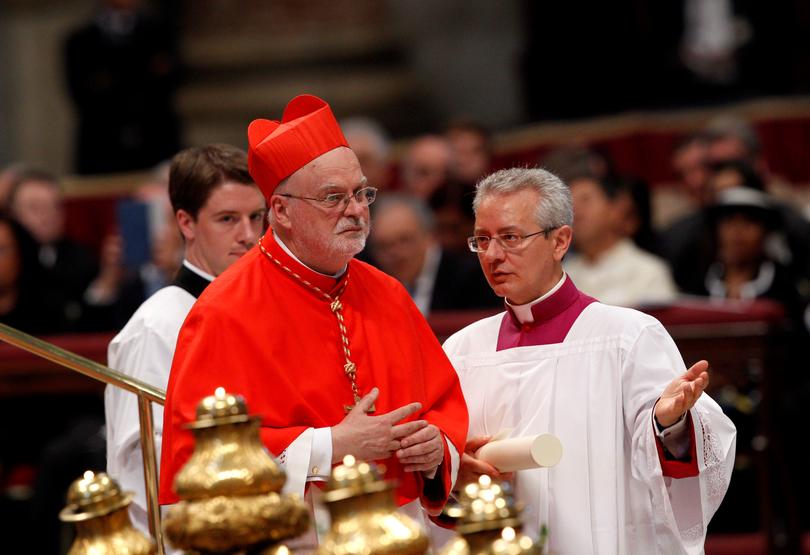
Arborelius, 75, is the bishop of Stockholm and the first ethnic Swede to serve as Catholic bishop of Sweden since the Reformation . He has an unusual background for a cardinal. He was born a Lutheran, in Sorengo, Switzerland, and converted to Catholicism when he was 20. He has suggested the creation of a special advisory body of women, similar to the College of Cardinals. He advocates an openness to refugees. After he was named a cardinal in 2017, he speculated that Francis may have wanted to encourage Sweden’s “very small Catholic community,” which is made up of “people who came from all over the world” and is “a bit marginalised in a secular society.” Arborelius has said he would be surprised if the next pope were from Europe. With the demographics of the Catholic Church “becoming less European,” he told OSV news, “the more natural thing was to think of someone from Africa or Asia.”
Charles Maung Bo (Yangon, Myanmar)

Bo, 76, is the archbishop of Yangon in Myanmar, a predominantly Buddhist country. He has been outspoken against the violence inflicted by the country’s military junta, which has reportedly targeted Catholic villages and churches, according to local and religious media outlets. He was born in the small village of Monhla, which was raided by the regime military in 2022, and he was ordained in 1976. He served in parishes across central and northeastern Myanmar and was appointed archbishop of Yangon in 2003. He also served as president of the Catholic Bishops’ Conference of Myanmar from 2000 to 2006. Francis made him a cardinal in 2015, and he served as president of the Federation of Asian Bishops’ Conferences for six years.
François-Xavier Bustillo (Ajaccio, France)

Bustillo, 56, is the bishop of Ajaccio, the capital city of the French island of Corsica, a staunchly Catholic region. He is among the youngest members of the College of Cardinals, but he is generating buzz - especially after having secured the first papal visit to Corsica in December. He has put himself forward as someone who can bridge divisions within the church, saying “differences are beautiful and should not lead to division.” Bustillo has a multinational profile. He was born in Pamplona, Spain, and studied theology in Italy and France. He was ordained a priest in 1994, appointed bishop of Ajaccio in 2021 and made a cardinal two years after that.
Fridolin Ambongo Besungu (Kinshasa, Democratic Republic of Congo)
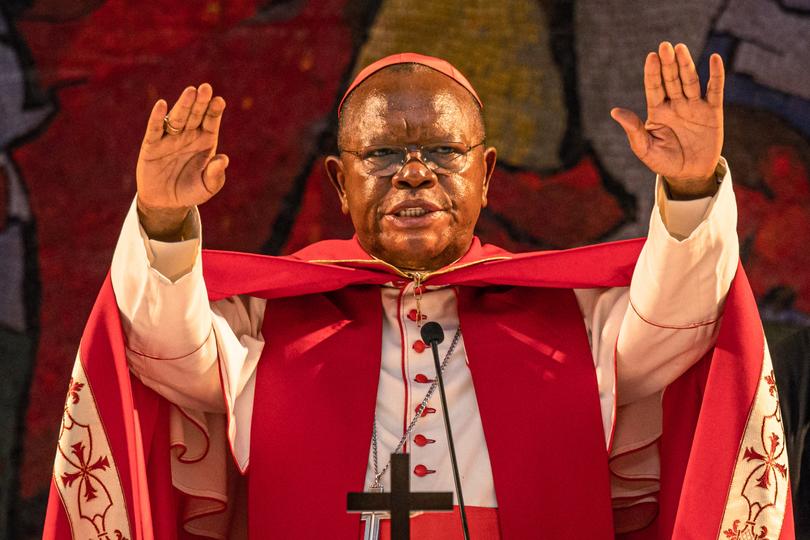
Ambongo, 65, is the archbishop of Kinshasa in the Democratic Republic of Congo and president of Africa’s association of Catholic bishops. He is among those mentioned as a possibility for the first Black pope and represents Africa’s rapidly expanding Catholic community. He is also among the cardinals who oppose blessing same-sex couples, despite Pope Francis’s endorsement. His vocal stance helped galvanize support for his papal candidacy among fellow conservatives but could make it challenging to win over the large bloc of more moderate cardinals in the next conclave. Born in Boto, near Congo’s northern border, Ambongo was ordained when he was 28. He taught moral theology at the Catholic University of Congo in Kinshasa. According to his Vatican biography, he helped respond to the spread of Ebola in Congo as well as political crises. Francis appointed him cardinal in 2019, and he is a member of Francis’s Council of Cardinals.
Jean-Marc Aveline (Marseille, France)
Aveline, 66, is the metropolitan archbishop of Marseille, a Mediterranean port city shaped by generations of immigrants and refugees. He would be “a pope from the same cloth as Pope Francis,” Martens said. He reportedly met regularly with Francis, and he convinced the pope to come to Marseille for a discussion about migration and other issues related to the Mediterranean. He disagreed with Francis, however, on the need to restrict the Latin Mass, and he was among the French clergy who urged caution after the pope okayed blessings for same-sex couples.
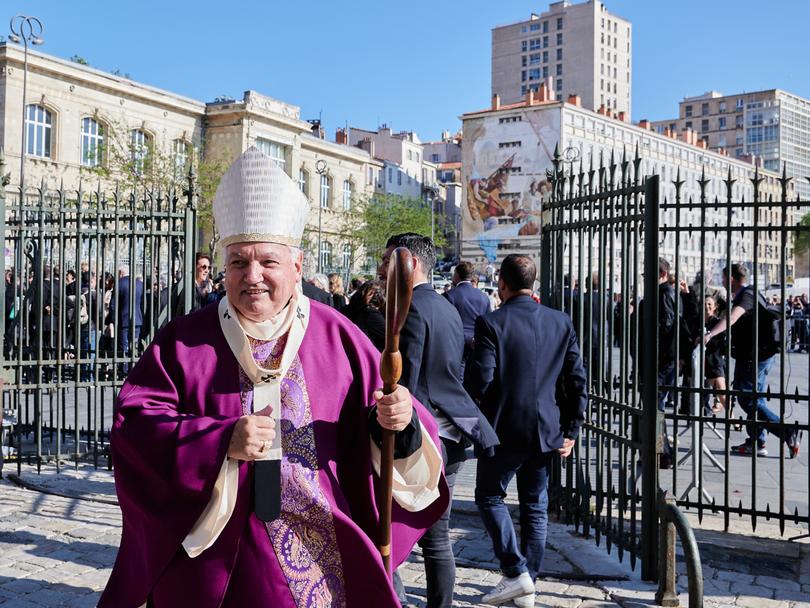
Aveline was born in Oran, Algeria, when it was under French colonial rule, but his family was among those forced out when Algeria gained independence. He studied in France in Marseille, Avignon and Paris. He was ordained in 1984 for the archdiocese of Marseille and has since held ministerial posts in parishes across the city. Francis proclaimed him a cardinal in 2022.
Luis Antonio Gokim Tagle (Manila)
Tagle, 67, is the pro-prefect of the Dicastery for Evangelization for the Philippines, an overwhelmingly Catholic nation. He is considered closely aligned with Francis and was at one point considered his “rising star,” Melloni said. He has criticized the “harsh” and “severe” rhetoric Catholic clerics use to describe members of the LGBTQ+ community, divorced people and unwed mothers. Tagle was born in Manila; his mother is of Chinese heritage and his father is Tagalog, according to the Vatican’s official news site. In 1991, a few years after he was ordained in Manila, he graduated from the Catholic University of America with a doctorate in theology. He was proclaimed a cardinal in 2012 by Pope Benedict XVI.
Mario Grech (Vatican City)
Grech, 68, is the secretary general of the Synod of Bishops, a top advisory body to the pope. He was formerly the bishop of Gozo in Malta. Grech was born in Qala, Malta, and studied philosophy and theology in the seminary of Gozo. He was ordained as a priest in 1984 and appointed in 2005 by Pope Benedict XVI as bishop of Gozo. Francis proclaimed Grech a cardinal in 2020.
Grech has embraced progressive stances on issues like the ordination of women, which he called a “natural deepening of the Lord’s will” in a 2024 interview, according to the Pillar, a news site covering the Catholic Church. He oversaw a landmark gathering of the Synod of Bishops that concluded in October without declaring major changes on women and LGBTQ+ Catholics.
Matteo Maria Zuppi (Bologna, Italy)
Zuppi, 69, is the archbishop of Bologna. He was appointed by Francis to lead peace missions in Russia and Ukraine and has worked with the Sant’Egidio community, a group of lay Catholics dedicated to social services. Born in Rome, Zuppi is the grandnephew of Carlo Confalonieri, a cardinal who was a top aide to Pope Pius XI in the early 20th century. After studying philosophy and theology, Zuppi was ordained in 1981 and spent many years in parishes across Rome. In the early 1990s, he helped facilitate peace negotiations in Mozambique during the country’s civil war, according to his Sant’Egidio biography. Francis made Zuppi a cardinal in 2019 and named him a judge of the Vatican City State Supreme Court in 2023.
Peter Erdo (Budapest)
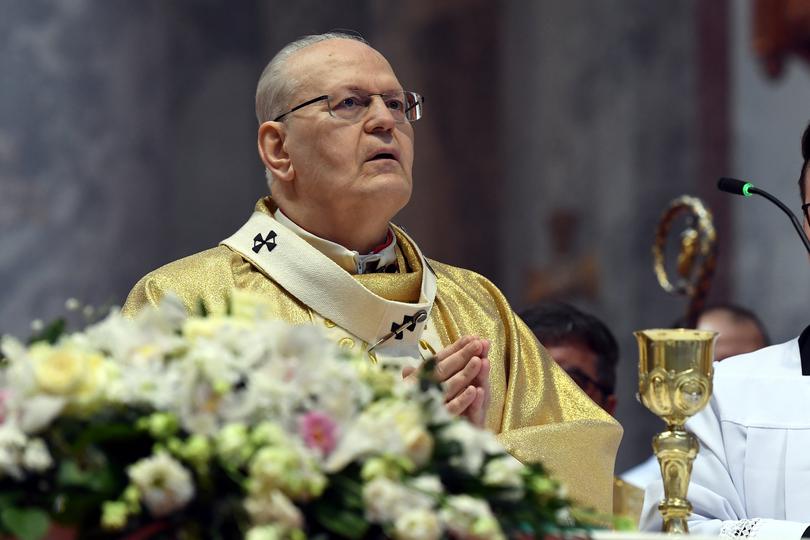
Erdo, 72, is the metropolitan archbishop of Esztergom-Budapest in Hungary and is among the College of Cardinals’ more conservative members. When Pope Francis declared in December 2023 that Catholic priests could bless (but not marry) same-sex couples, Erdo appeared to oppose the decision in his Christmas Eve sermon, without naming the decree directly, according to the National Catholic Reporter. He has also opposed allowing divorced and remarried Catholics to receive Communion. During Europe’s migrant crisis in 2015, Erdo said the church should not take in people because it would constitute human trafficking, Reuters reported.
Erdo was born in Budapest in 1952 and ordained just before his 23rd birthday. He served in a small-town parish close to Hungary’s border with Slovakia and later obtained doctorates in theology and canon law. Erdo was appointed cardinal in 2003 by Pope John Paul II and has participated in two past conclaves. He is seen as one of the most likely of the contenders from the conservative camp.
Pierbattista Pizzaballa (Jerusalem)
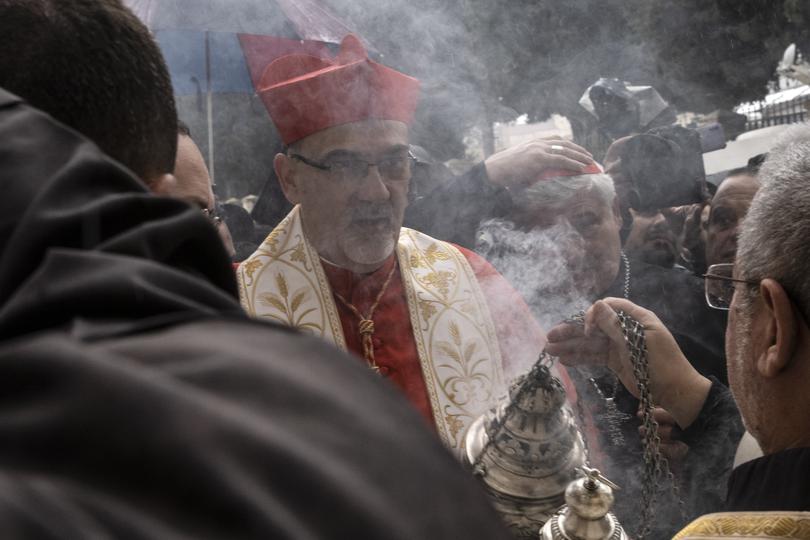
Pizzaballa, 60, is the Latin patriarch of Jerusalem, the ranking archbishop of the Catholic Church in Israel, the Palestinian territories, Jordan and Cyprus. He has acted as a diplomat for peace and demonstrated dedication to his flock. After Hamas’s attack on Israel in October 2023, he said he’d be willing to offer himself in an exchange for the return of kidnapped Israeli children. Last year, he made a pre-Christmas visit to the sole Catholic parish in Gaza. After President Donald Trump proposed taking over the Gaza Strip and resettling its population, Pizzaballa’s office issued a statement on February 14 opposing “any attempt to uproot the people of Gaza from their land.”
Pizzaballa was born in Cologno al Serio, a village in northern Italy, and ordained a priest in 1990. Francis made him the Latin patriarch of Jerusalem in 2020 and Pizzaballa was proclaimed a cardinal in 2023. His selection would make him the youngest pope since John Paul II, who ascended to the job at age 58.
Pietro Parolin (Vatican City)
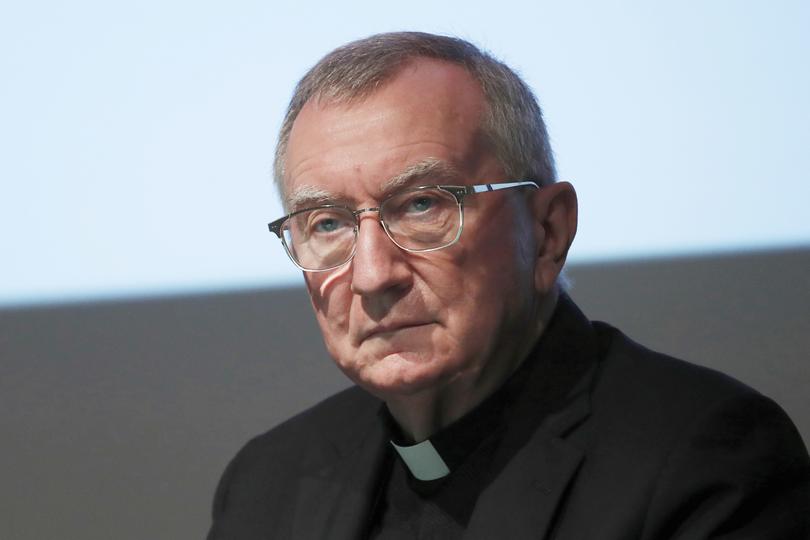
As the Vatican’s secretary of state, Parolin, 70, has been the pope’s top diplomatic envoy since 2013 and is among the highest-ranking cardinals in seniority. He spent years in the Holy See’s diplomatic service, with stints in Nigeria, Mexico and Venezuela. Vatican experts describe Parolin as a cautious, prudent and moderate leader who is well-known across the College of Cardinals. According to his Vatican biography, Parolin is an expert in Middle Eastern and Asian affairs and has helped reinforce the Holy See’s diplomatic ties to places such as Vietnam, Israel and Mexico. Francis proclaimed him a cardinal in 2014, and he is part of Francis’s Council of Cardinals, a group established to consult on governing the church and reforming the Roman Curia. Parolin was born in a small province in northern Italy and was ordained a priest when he was 25. He joined the diplomatic service six years later and spent relatively few years in parish ministry.
© 2025 , The Washington Post
